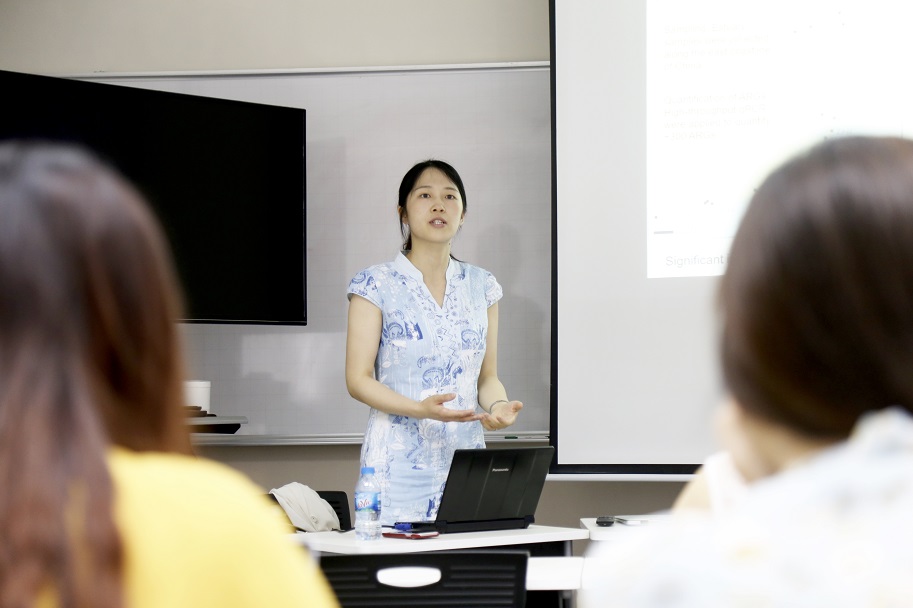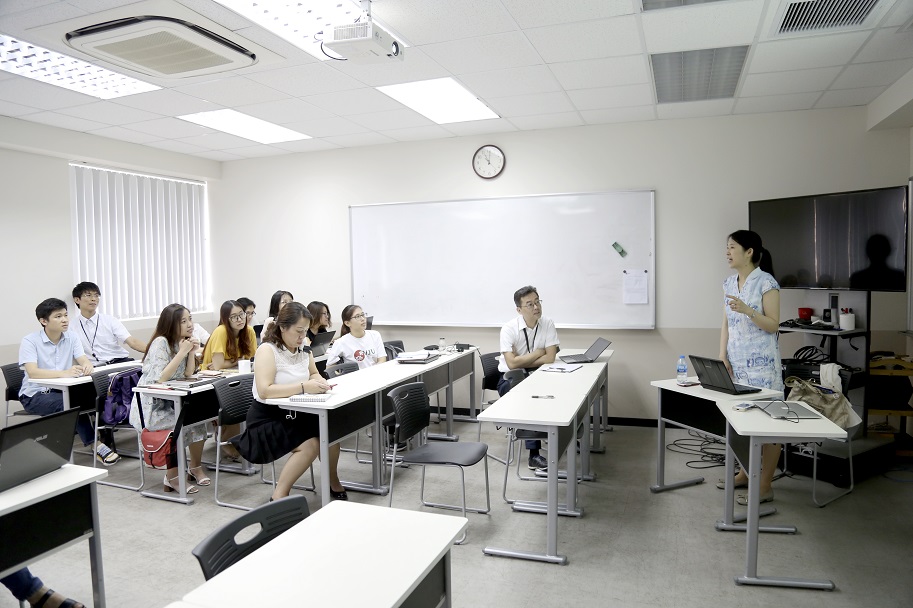On June 17, the Master’s Program in Environmental Engineering (MEE) held a special lecture on the topic “The global occurrence and control of antibiotic resistance in water environment” with guest speaker, Dr. Miaomiao Liu, from The University of Tokyo, JSPS Postdoctoral Fellowships for Research in Japan.
.jpg)
Antibiotic resistance in water environment (Credit: Inhabitat source)
According to a notice of the Ministry of Health, Vietnam, about 10 years ago, the phrase “antibiotic-resistant bacteria” began to be announced more densely on media, in microbiology and infection. Previously, this phrase was often overlooked because prescribed antibiotics appeared to still work well on most strains of bacteria.

Dr. Miaomiao Liu
Recently, at VNU – Vietnam Japan University, Dr. Liu, from The University of Tokyo, JSPS Postdoctoral Fellowships for Research in Japan, delivered a special lecture to students of the Master’s Program in Environmental Engineering (MEE) about her research around the antibiotic resistance in wastewater treatment.
According to Dr. Liu, the waste of human and animal activities contains antibiotics. When released into the environment, antibiotics will remain in soil and water. According to studies, the concentration of antibiotic-resistant bacteria in these environments is often very high and vice versa.


Purpose in the research of Dr. Liu is to reveal abundances of antibiotic resistant bacteria in water environment by targeting genes conferring resistance to antibiotics. Wastewater treatment plant is a hot spot for dissemination of antibiotic resistance genes. .
In the environment, bacteria often change their characteristics very quickly by transformation, transduction and conjugation. The spread of antibiotic resistant bacteria to environment is of great concern. Therefore, the study of finding new measures to prevent antibiotic-resistant bacteria is extremely necessary, requires a consistent and long-term research. In fact, some students in MEE study this topic in their master thesis.
These studies are significantly important to the health care industry due to findings of new ways to prevent antibiotic-resistant bacteria.

